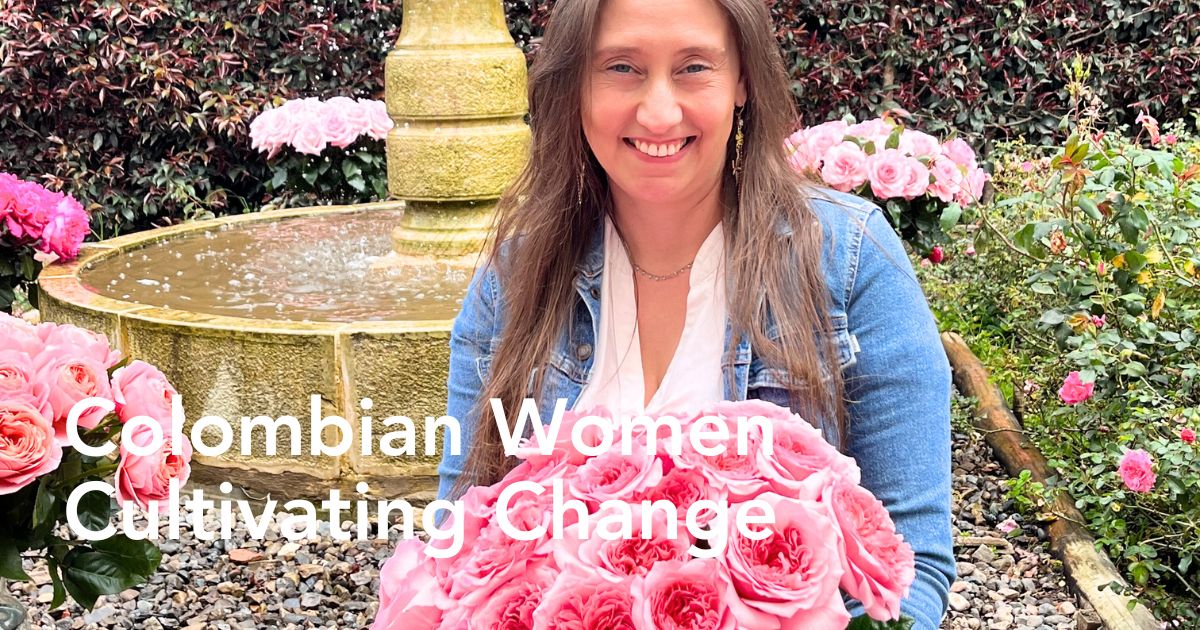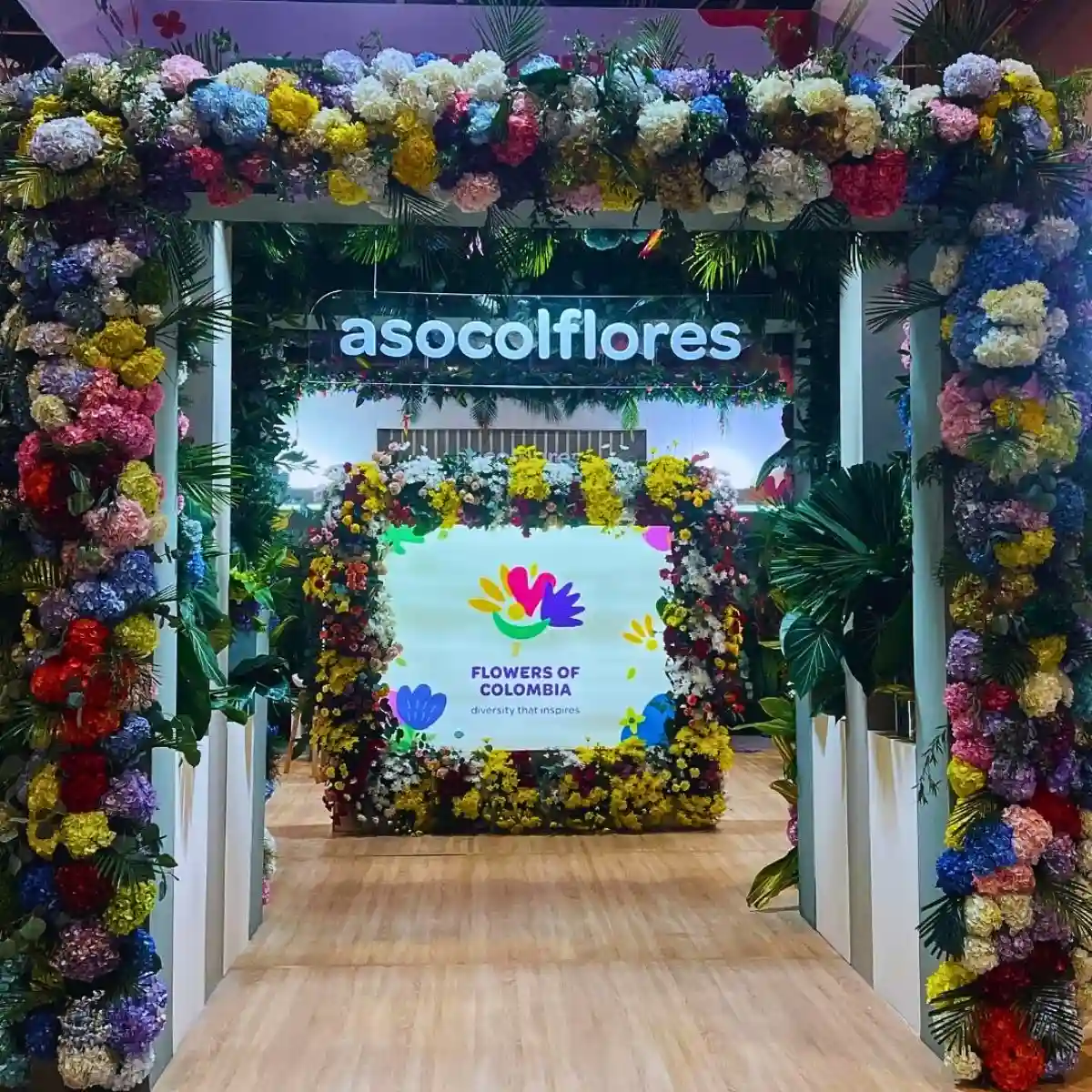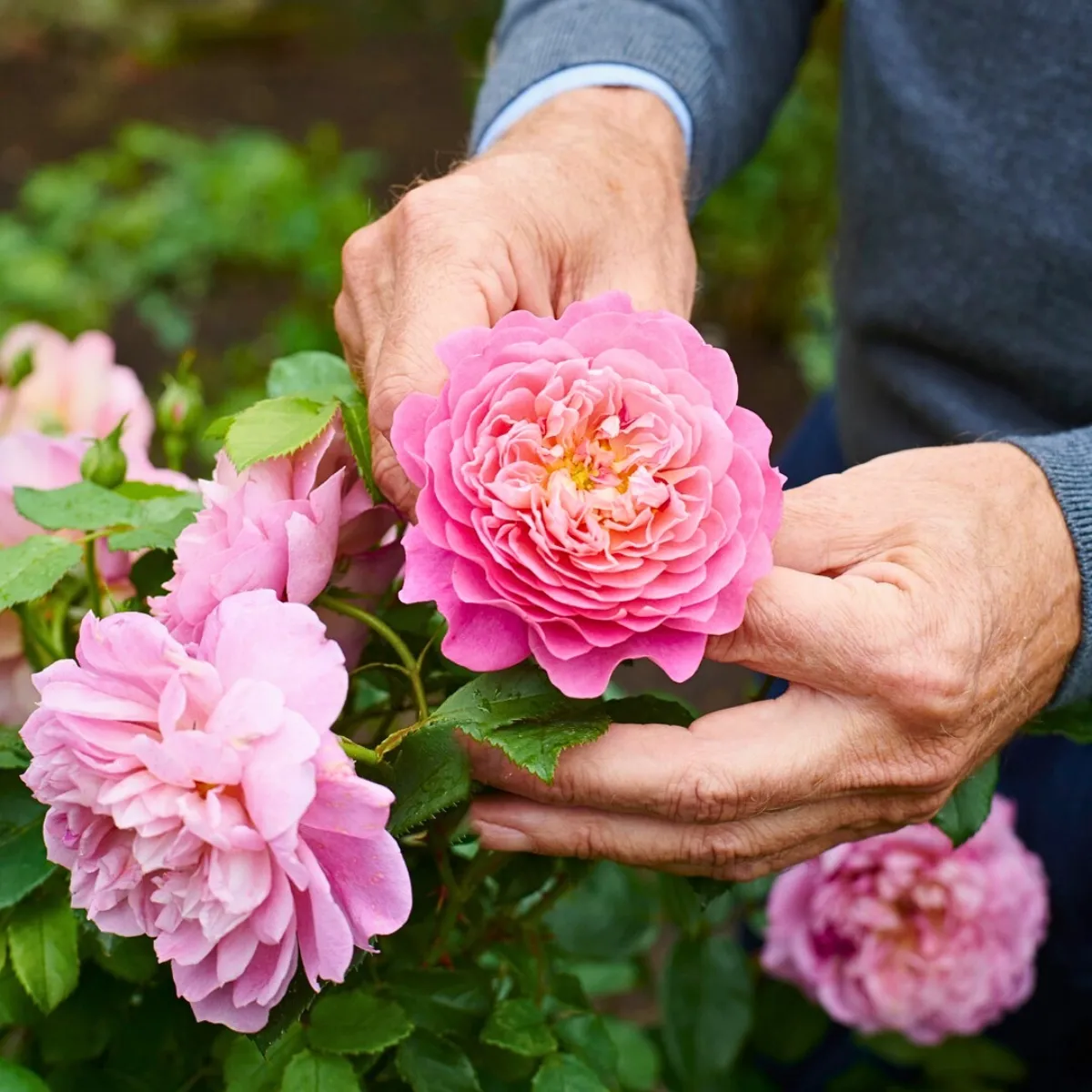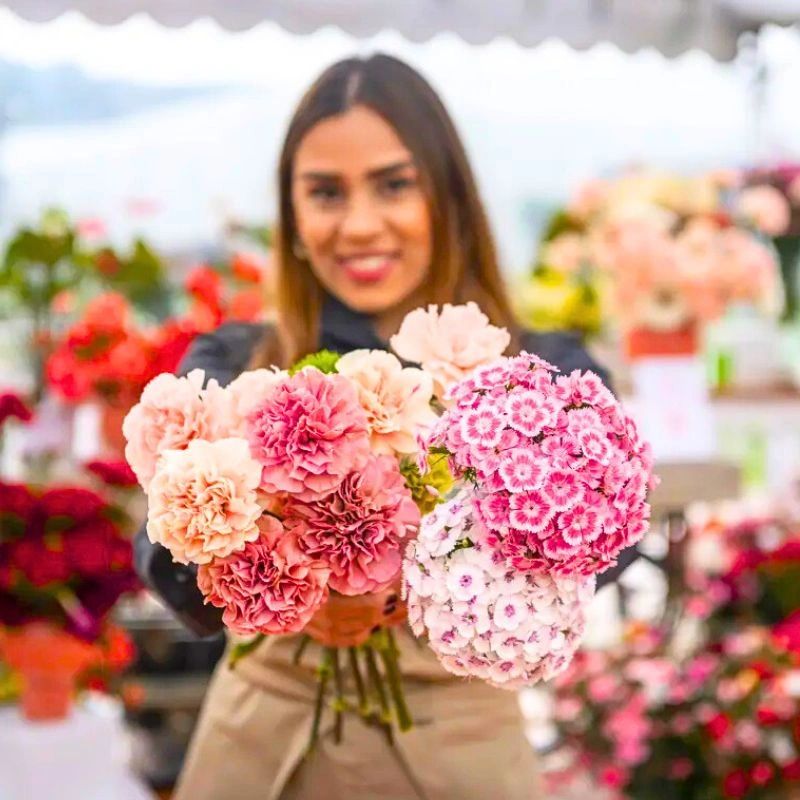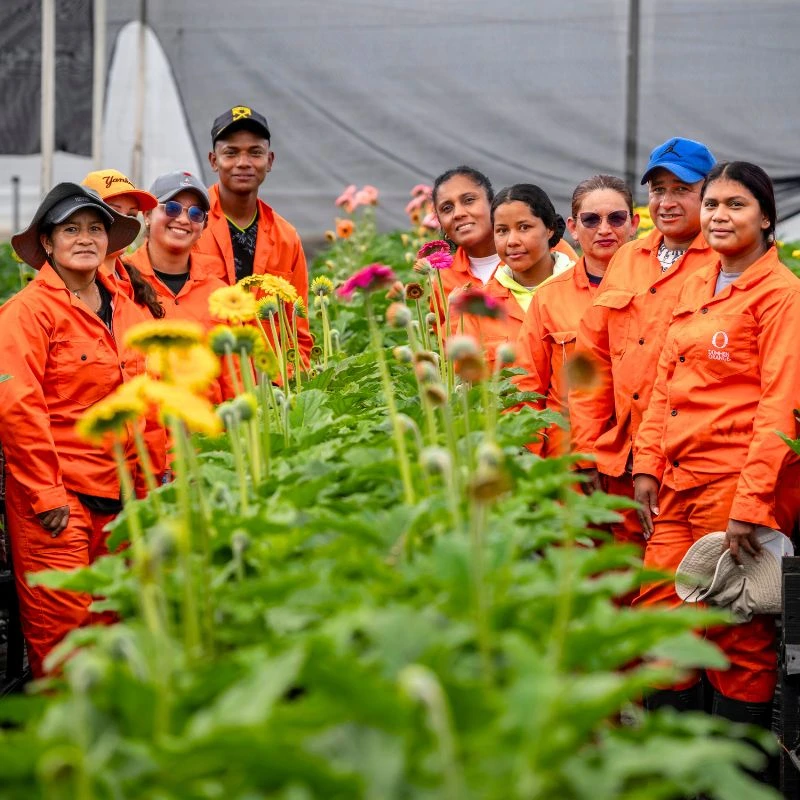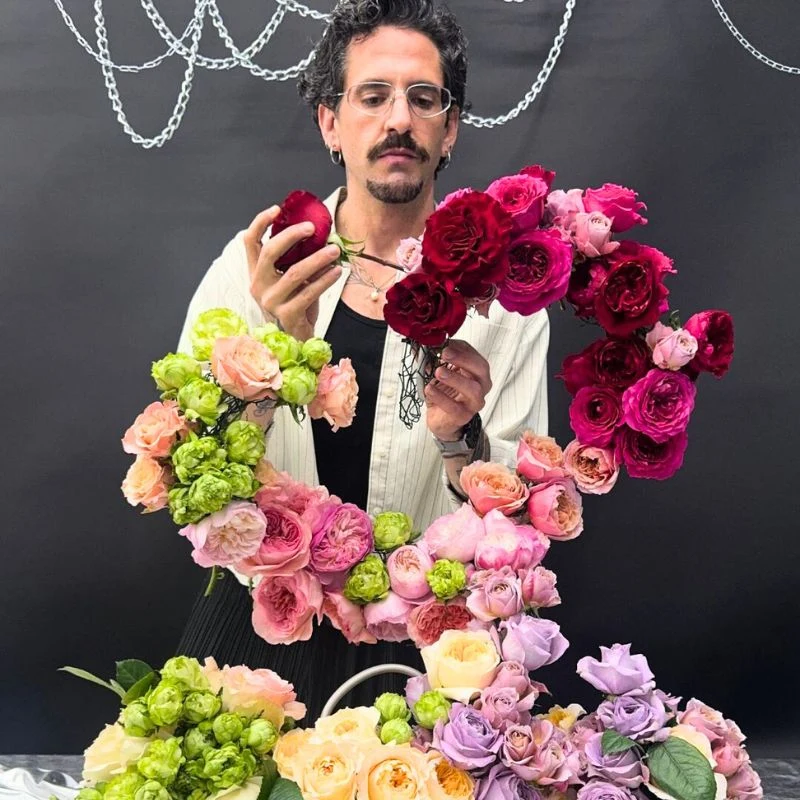Colombian floriculture has witnessed the passion and tireless work of women who, for years, have cultivated more than just flowers. They have sown history, dreams, and a lasting legacy. In this article, there's a special tribute shared about four exceptional women whose lives dedicated to the industry have flourished through hard work and love for what they've done for years and years. Some of them, after decades of dedication, have passed the torch to new generations, leaving an outstanding mark. Their stories not only honor the value of the paths they’ve walked but also aim to inspire those who, today and in the future, will continue to grow this industry.
Colombian Women That Have Inspired the Floral Industry Through the Years
Melissa Maingot and Shallima Turizo had the great idea of wanting to show more about the power of women in the floral industry and it was during a visit to farms in Colombia that they got together to interview influential and powerful women in the Colombian flower industry. These incredible women opened their doors and hearts to obtain an insightful and wonderful interview. As you read it, they aim to portray and express their gratitude and positive sentiments towards the industry that has given them so much, including the blossoming of a great part of their lives. Feel the warmth they experienced when meeting them and hopefully, these stories motivate and inspire you as much as they inspired them.
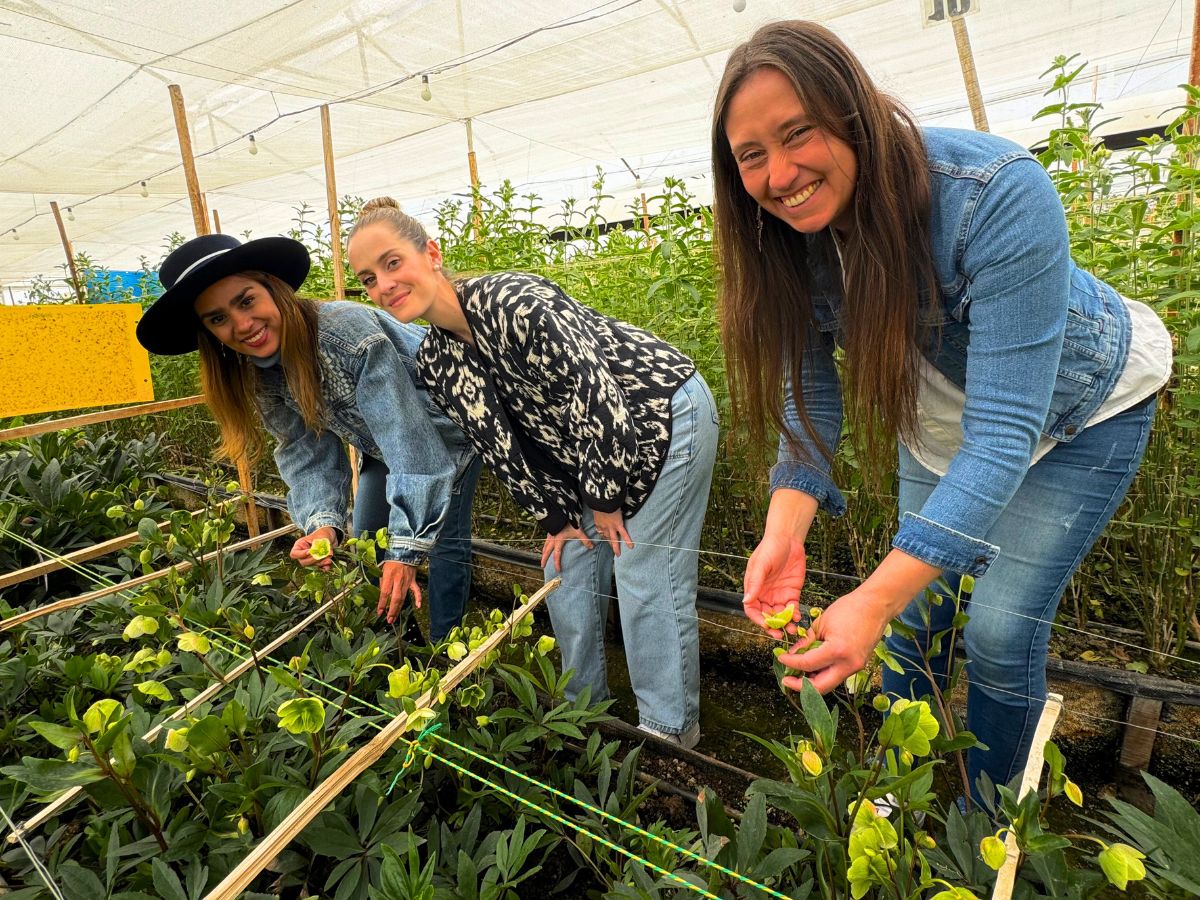
The first powerful woman that was interviewed was Amanda Vargas, former Director of Propagation of Rosen Tantau, and they had the opportunity to ask her more about herself and her career.
Q: What motivated you to choose a career in Biology, specifically in the floral industry?
Amanda:
"Diversity. This industry is explored from the most microscopic things to the large and majestic. I entered the world of flowers because of an opportunity that was offered to me to develop my postgraduate work standardizing the ELISA technique for virus detection in carnations accompanied by the mission to start and develop the Tissue Culture Laboratory. This experience opened an immense job and career opportunity for me to direct and develop tissue culture laboratories in Floramerica, being fully in charge of fifteen products including potatoes and bananas.
Later, and in parallel with the work I was doing at the laboratories, I accompanied and directed the field propagation programs by cuttings, bulbs, rhizomes, and seeds. Thanks to the technical support and that of renowned advisors, to leaders such as Richard Vaughan, Peter Hannaford, Julio Amador, and Moisés Croitoru who believed in biotechnology, these achievements of mine were possible."
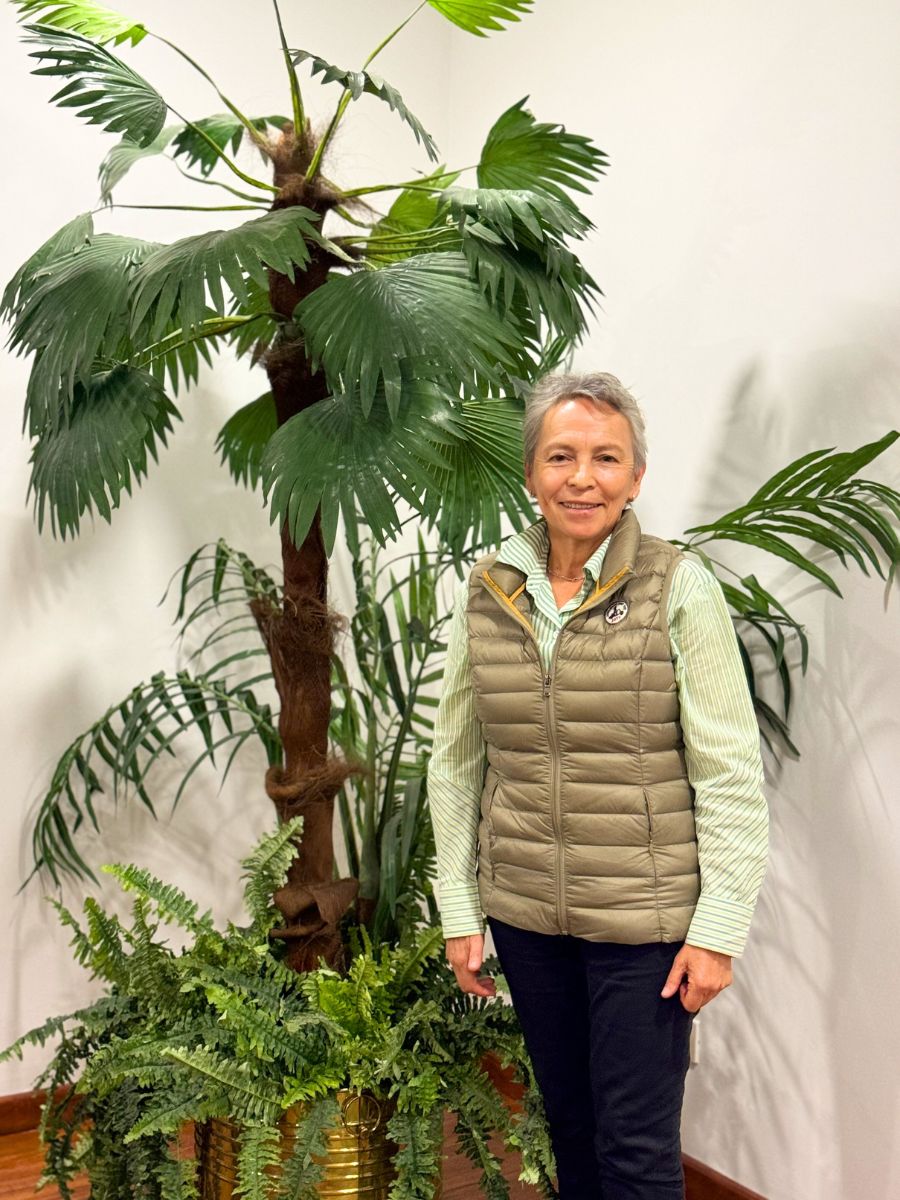
Q: What were some of the biggest challenges at the beginning of your career?
Amanda:
"To fulfill my promises despite feeling like I knew nothing, I had to ask questions and investigate a lot. This is how I landed at the National University, where many doors were open for me to explore, and best of all, I got support from an incredible and renowned doctor in Virology, Dr. Margarita Perea, who specialized in 'Tissue Culture' and from a group of students that were passionate about research. I have always had great challenges because in the propagation field, compliance, despite errors or mistakes is what marks a good job. Compliance corresponds to flower exporting companies fulfilling their commitments for specific seasons and dates, which is their reason for being."
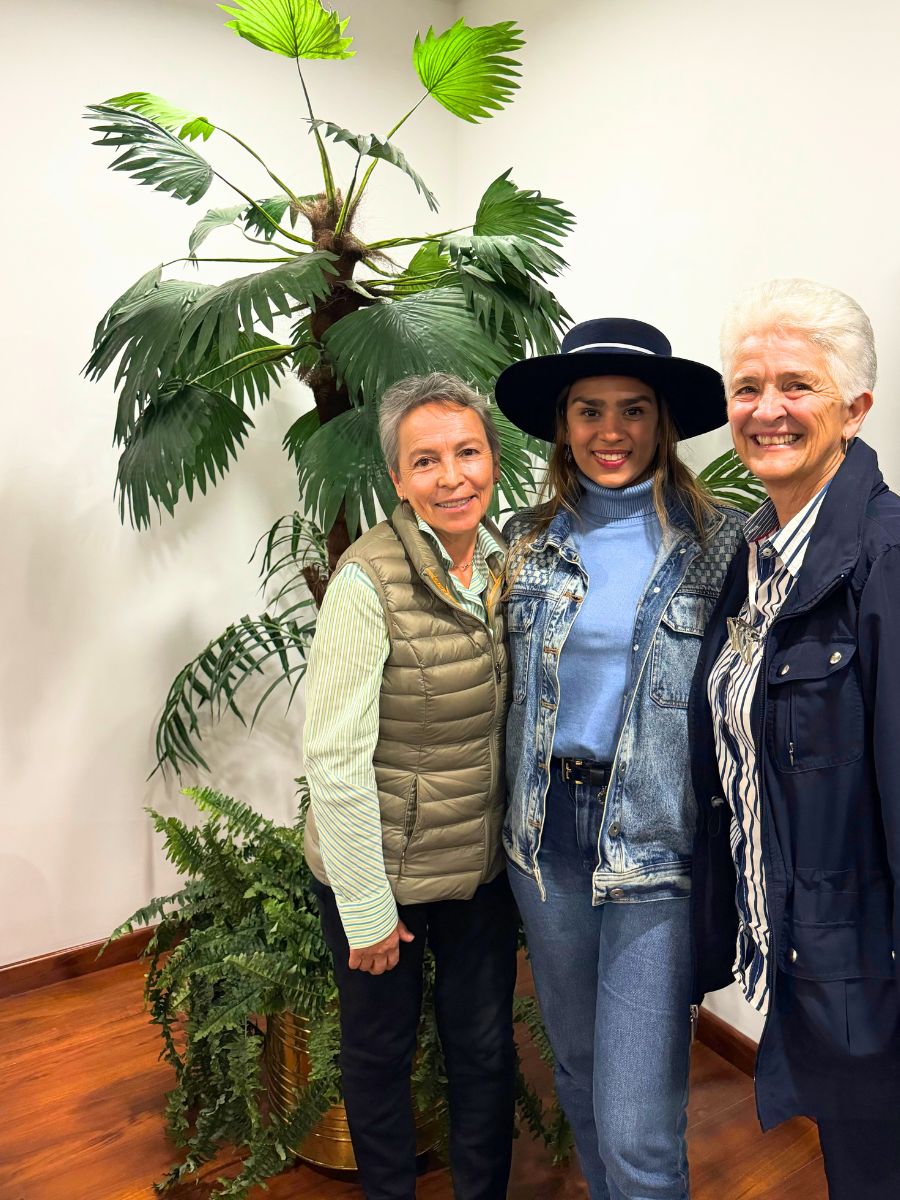
After Amanda let them know more about how she shaped her trajectory in the floral industry (one she absolutely adored and has taught her things she never thought possible), they went forward to interviewing Rubiela Zapata, Sales and Production Manager at Rosen Tantau Colombia where she was asked:
Q: How has your work contributed to the local community and social development?
Rubiela:
"My work has contributed significantly to the local community and social development in several aspects such as:
- The creation of numerous job opportunities for the inhabitants of the municipalities and the region, which has reduced unemployment and improved the quality of life for many families. We strive to offer fair wages and safe working conditions for all our employees.
- We implement training programs for our workers, providing them with the necessary skills to grow professionally within the company and beyond. This not only improves our productivity but also raises the educational and professional level of the community.
- We are committed to sustainable agricultural practices that protect the local environment. This includes responsible use of water, reduction of pesticides, and the implementation of cultivation techniques that preserve biodiversity.
- We actively participate in community projects, with training programs at the company school and the organization of cultural events. This also includes the support of health and well-being initiatives for our employees and their families.
- Additionally, we also promote gender equality and women's empowerment in our company, providing leadership and professional growth opportunities. This has helped change the social and economic dynamics in our community, fostering a more inclusive and equitable environment.
In short, through these actions, we not only strengthen our company but also contribute to the general well-being and sustainable development of our local community."
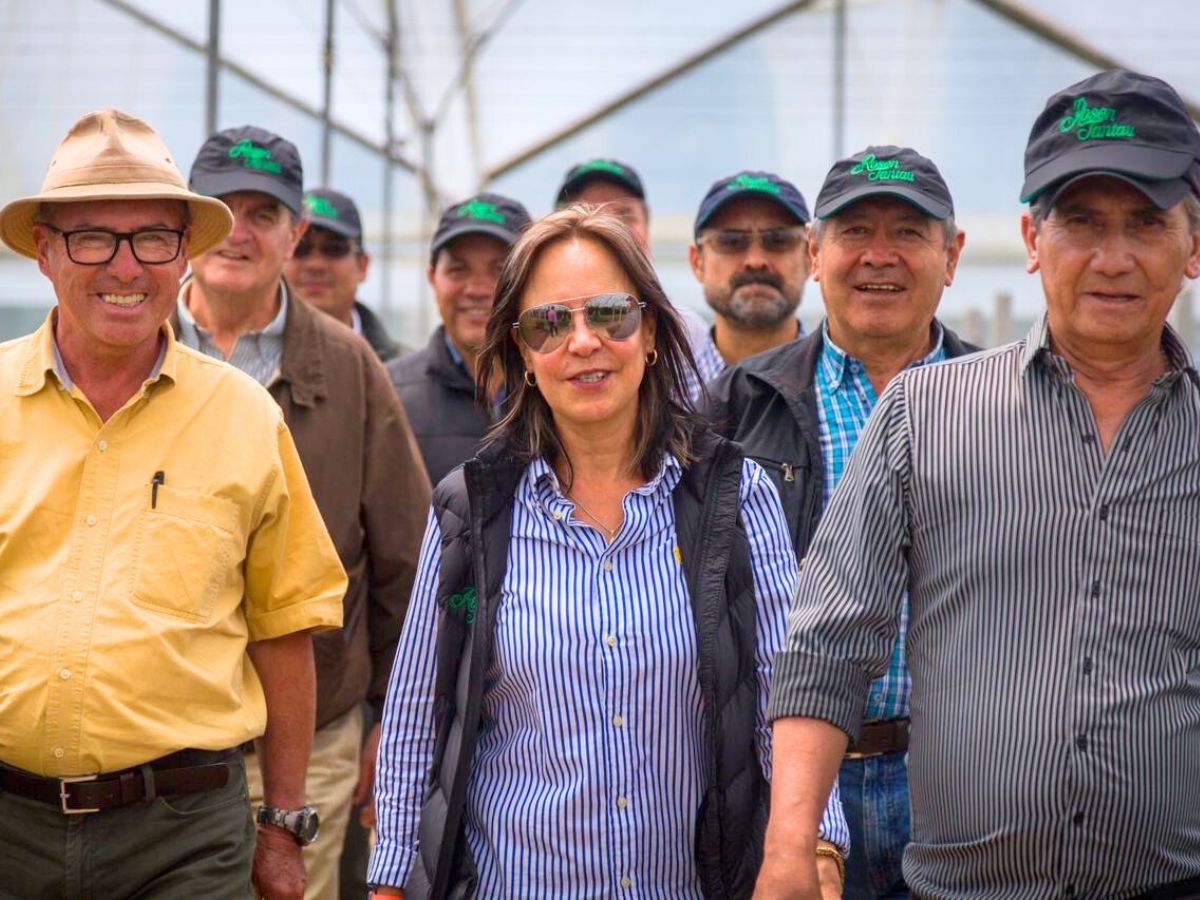
Q: How do you see the role of women in building a more inclusive and equitable floral industry?
Rubiela:
"The role of women in building a more inclusive and equitable floral industry is essential because women contribute a unique and valuable perspective in several key aspects such as leadership and management, to begin with. Women in leadership positions foster a collaborative and positive work environment, promoting an inclusive culture. Secondly, our talent for creativity drives the creation of new flower references, innovating and creating trends in the market. Many women are committed to sustainable and ethical practices, benefiting both the environment and local communities.
Women's participation in the business not only generates personal income but also empowers other women and strengthens local economies. Our job encourages diversity and equitable opportunity for all people, regardless of gender or origin. Overall, I believe that women have an important role in making the floral industry more inclusive, equal, and responsible."
More Women's Power and Empowerment From Colombia to Know About
Sandra Medina, Director of Research and Development of SB Talee Colombia was interviewed regarding leadership and professional development in the Colombian flower industry and what she has experienced of it.
Q: What skills and qualities do you consider essential to lead a team in flower propagation?
Sandra:
"A leader of a flower propagation team must be a person with a passion for plants, curiosity, and a desire to always learn from them; with teamwork skills, with the ability to schedule and organize work, pay attention to detail, and have a lot of discipline in each task. This person must adapt to dynamic changes, be flexible, and be agile in decision-making."

Q: How do you support the professional and personal development of your team?
Sandra:
"We have a rigorous, organized, and disciplined work method with established processes that are constantly being reviewed and improved by the team. I constantly motivate my team and encourage them to read, document, and learn about topics that are of interest to the work in progress. I promote and support training initiatives in the personal and professional fields of the team members."
Q: Lastly, what advice would you give to young women who aspire to a career in biology and the floral industry?
Sandra:
"Anyone interested in pursuing a career in this area must be passionate about nature, plants, and fieldwork. They must know that the pace of work is intense and very dynamic. The floral industry is very broad and the fields of action are varied even more with the biodiversity of a country like ours (Colombia) favoring multiple lines of research work. With discipline, dedication, and the appropriate resources, we could become leaders in the industry by developing our own products that would be highly appreciated by consumers in any country in the world."
Lastly, while the duo visited farms in Colombia, they had an incredible talk with Pilar Buitrago, Director of Research and Development of Alexandra Farms. To know more about her career and trajectory in the industry she was asked:
Q: What projects or initiatives have you led that you consider have had a significant impact on the floral industry?
Pilar:
"Participating and contributing my grain of sand from the research side in the organization and development of a company as important as Alexandra Farms, I think, has been one of the most important achievements in my professional career. thirteen years ago when I started working in the floral industry here at Alexandra Farms, it was thanks to the fact that they allowed me and gave me the freedom to investigate many things and processes related to garden roses that I was able to learn so much. In addition, I was able to collaborate with the implementation of the Florverde certification, participate in the development of a program for the introduction of new varieties of garden roses for launch on the international market, carry out the search for hundreds of new varieties of garden roses, among many other goals. It has been and will be my greatest achievement within this industry."
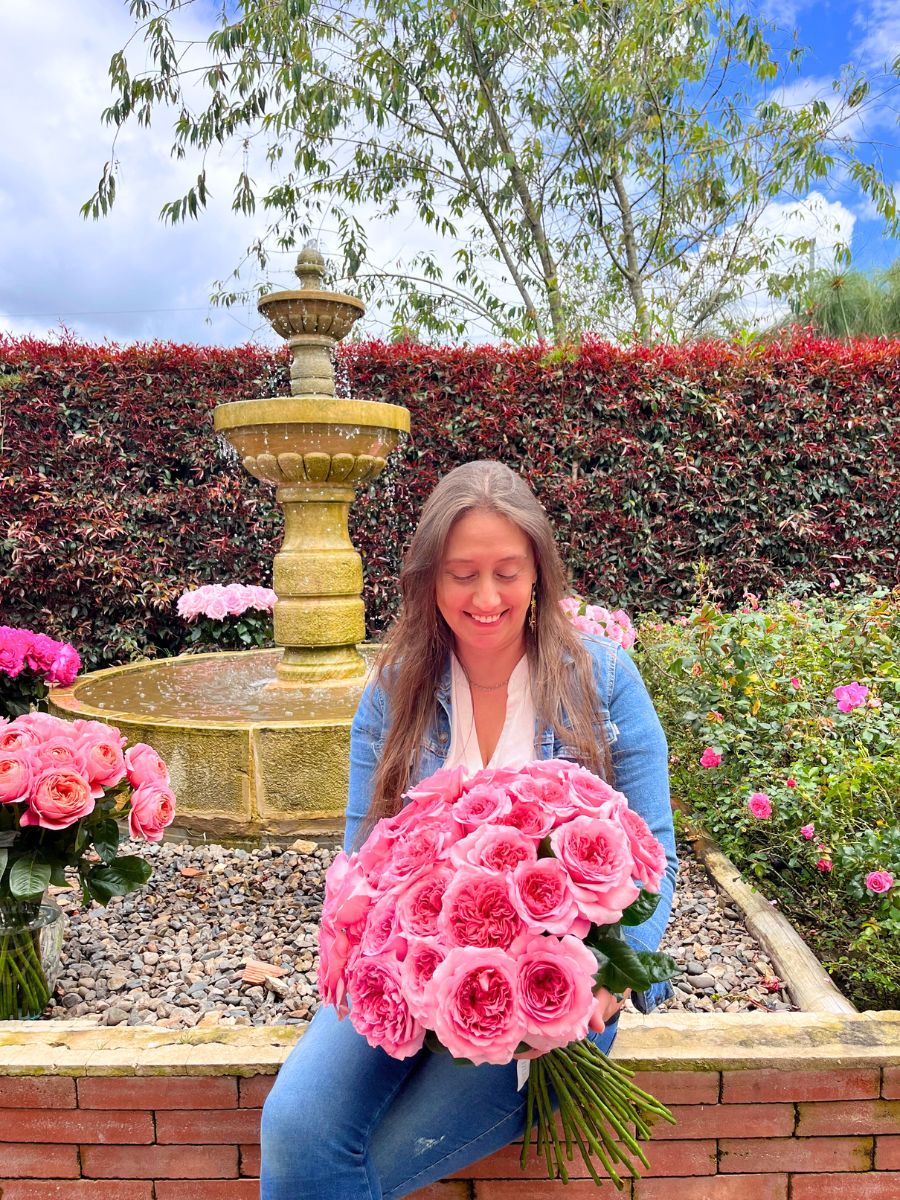
Q: How do you think your work has influenced the evolution of flower propagation in Colombia?
Pilar:
"I don't think it's my job per se, but rather the meeting and performance of a great team within the company. This is what has influenced me to do my bit to have a positive impact on the evolution of floriculture in Colombia. Being able to do serious, well-planned work scientifically, seeing how activities as small as evaluating a variety from both the agronomic and biological side as well as from the vase life and then seeing it on the international market with great success, is a very gratifying feeling that day after day influences the great success of flowers in Colombia.
Carrying out evaluations using a scientific method, which allows us to ensure that the procedures established in post-harvest are followed to obtain an adequate vase life and great resistance during the journey to the final customer, is a task that makes me proud and makes me feel that I contribute something important to floriculture."
Lastly, they asked Pilar to share a moment or achievement that she is especially proud of:
Pilar:
"Leading a 'Special Projects Area' that allows me to work in different areas within the company has been one of the components of my job that has made me very proud. These include carrying out experimental evaluations, through the application of the scientific method, where different methodologies and products used in post-harvest and/or cultivation are evaluated, devising and testing new methodologies or protocols that are useful for the company, implementing new processes that provide significant advances in the farm's processes, among others.
I am also extremely proud of being able to consolidate actions within the company along with all the information and knowledge that all those powerful women bring to the farm day after day. I am happy to be a part of the representation of all those strong, influential, forward-thinking female collaborators, and single mothers, who work in the company."
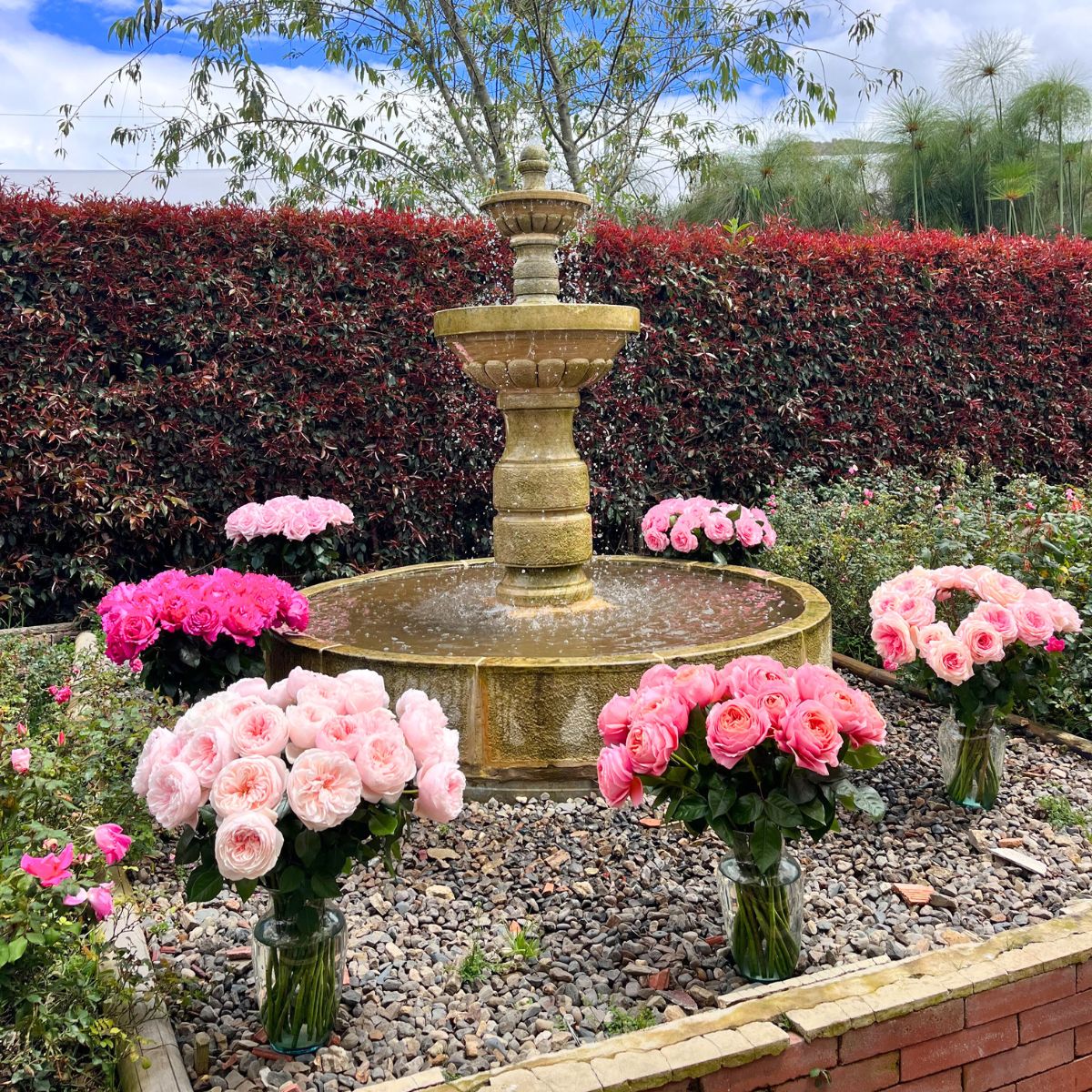
In an industry often dominated by male figures, the power of women in the floral world shines through in their creativity, resilience, and ability to cultivate beauty, transforming not just flowers, but the entire industry itself.

